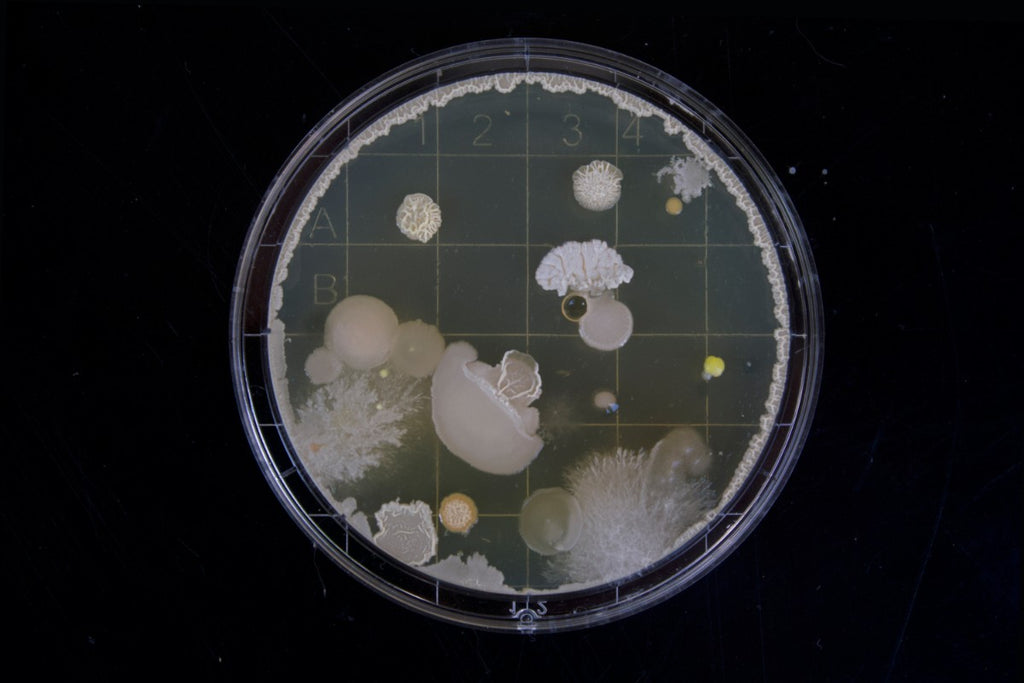What the Yeast? The Potential Impact of a Synthetic Genome
We won’t lie, at ThePureWay it’s difficult to be excited about synthetic materials...ever.
So when we stumbled upon an article regarding a group of Scientists who are responsible for constructing “an artificial chromosome to be inserted into the world’s first Synthetic Yeast,” the initial response was, “Okay… This sucks.”
The goal of synthetic yeast is that it could be synthesized to build everything from a biofuel to personalized medications and vaccines. The implications for Big Pharma and the Trillion Dollar Petrol Industry are something like:
And that does suck because it isn’t rooted in any sort of positive movement at all.
But, we also recognize that the science that comes from a synthetic yeast has the potential to make a huge difference for humanity in our lifetime—and the funding (though rooted in greed and only beneficial to the wealthy few) is still allowing us to learn more about biome than we even have before.
Science is a Tool
Yeast is used to make everything from Beer to Biofuel—you find it in your breads, your soy sauce, floating in the air, your kombucha, and in your body.
It is notoriously mercurial and almost impossible to replicate in natural settings—in fact the original fermented beverages were considered made by witches because it took the right kind of “hocus pocus” to get it just right.
That’s why synthetic yeast is such a big deal. Scientists can create replicable results, allowing them to make hypotheses about what will happen when they inject/expose it to different types of experiments. This lets scientists make more stable and quantifiable guesses about how our bodies will react to new additions to the world around us.
You see, yeast is a living organism. Simple as it may be, the cellular makeup of a yeast is comparable to plants and animals. Being able to synthesize and test at a cellular level has innumerable implications for the types of challenges humans will face in this century—least of all is that this could seriously curb the need for animal testing in science
While we admittedly are concerned that our bodies will be vaccinated with the same type of yeast that our car might run on, we also have to admit that it’s a better, and arguably much safer, alternative than mercury in our bloodstream and huge carbon emissions forced into the atmosphere.
We want to be clear that we’re not taking a stance that this is a good thing or a bad thing. We’ve seen RoboCop and definitely have a hard time believing that Biology, Technology, and Engineering can somehow cohesively intermingle.
We’re openly proponents of living a healthy lifestyle with proper exercise, nutrition, and a practice that keeps you centered—but we’re also not going to turn our backs on science because if it.
As a species, we have to progress. Science is the tool that humans use to follow our own curiosity to answering really important questions and making that progress.
Synthetic yeast and the ability to test genome structures is potentially a huge step towards ridding our daily lives of harmful chemicals—and that puts us all on the same side.
Open Source Yeast
Open source yeast—see what we did there? (That’s a yeast pun that any fermenter would smirk at.)
The original article we found was from 2013, when this was really in its infancy—note here that it still is. We delved a little further into this topic to check on the progress of the science here.
It’s a little shocking, but this information is readily available (albeit science that’s difficult to understand) and the yeast genome synthesis is actually an open source project.
That means that even though this is a government funded project and it’s most assuredly being used by the wealthy few, it’s also available to the unwashed mass of scientists that want to solve problems facing humanity (most notably the issue of serious overpopulation).
There was a conference held in 2018 that called for anyone utilizing this information to get together. The purpose of this conference was to “highlight work currently being undertaken in the most crucial areas, and delegates will have ample opportunity to network with colleagues, to exchange ideas and to forge new collaborations.”
Not only could this be a new wave of information for humanity, it could be a new way that we share what we learn. Scientists have the chance to make a real difference for our species and our planet and, at least from outside the scientific community, it looks like that’s exactly what they’re trying to do. Fingers Crossed.
What do you think about the synthetic yeast genome project? Tell us in the comments!
References:
https://www.bbc.com/news/science-environment-23244768
http://syntheticyeast.org/
http://science.sciencemag.org/content/355/6329/1040
Photo by Michael Schiffer on Unsplash


0 comments